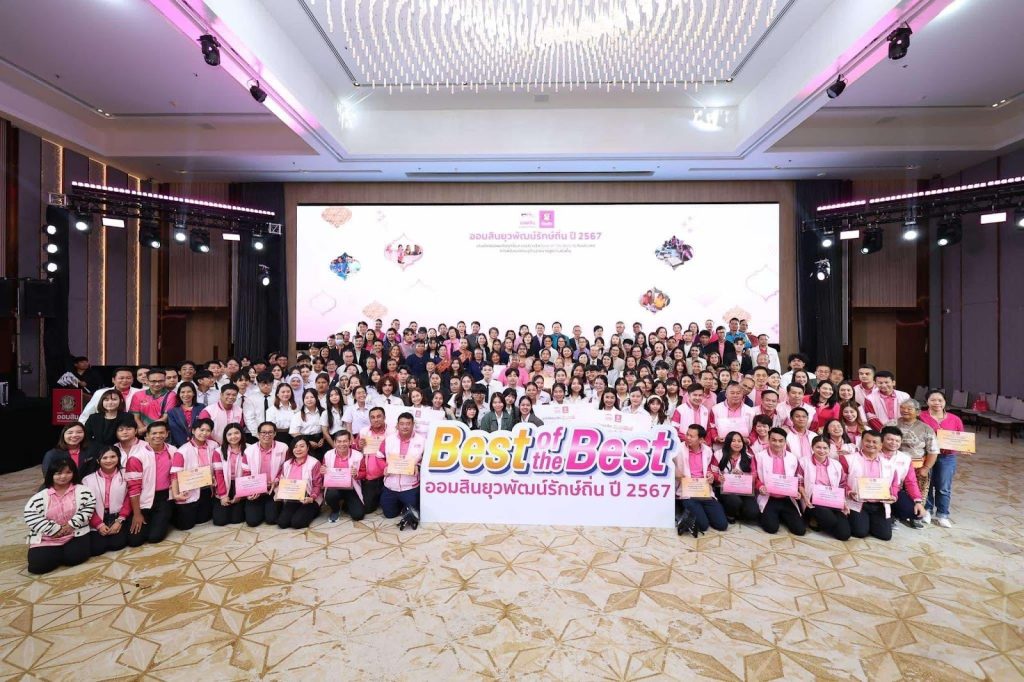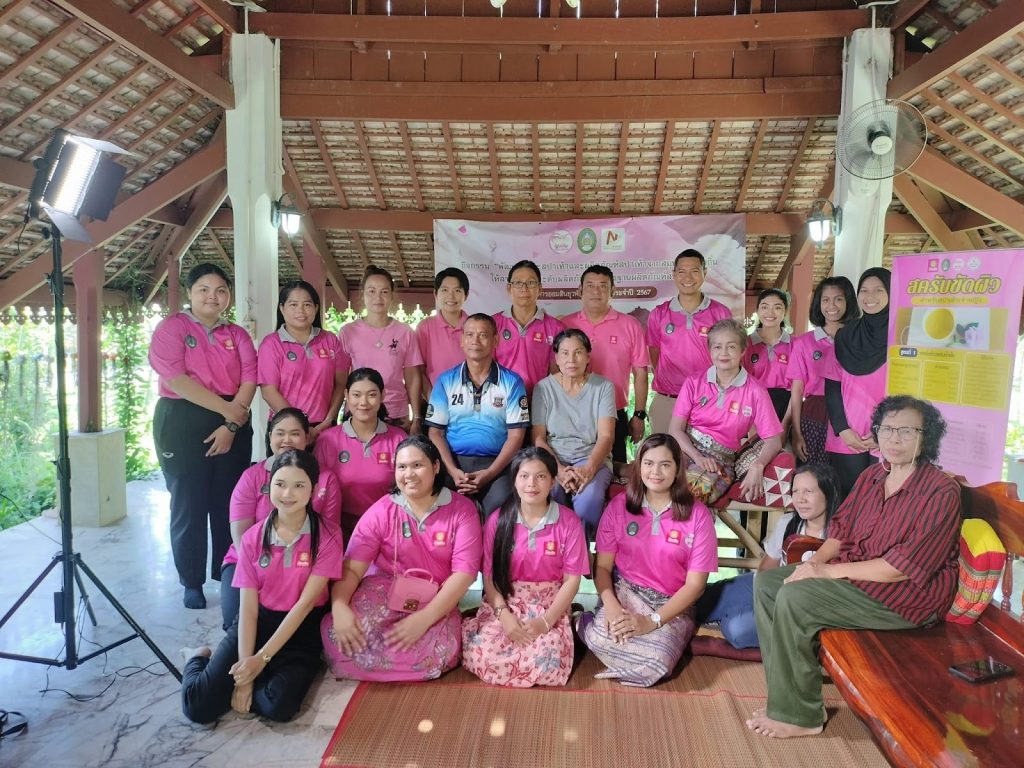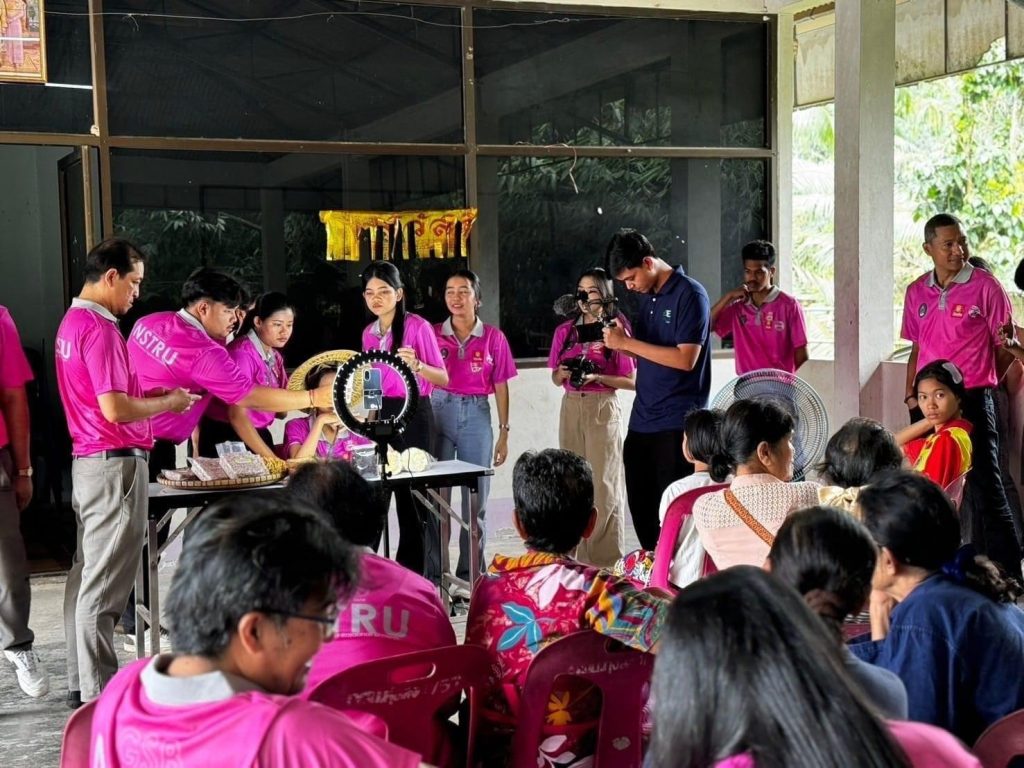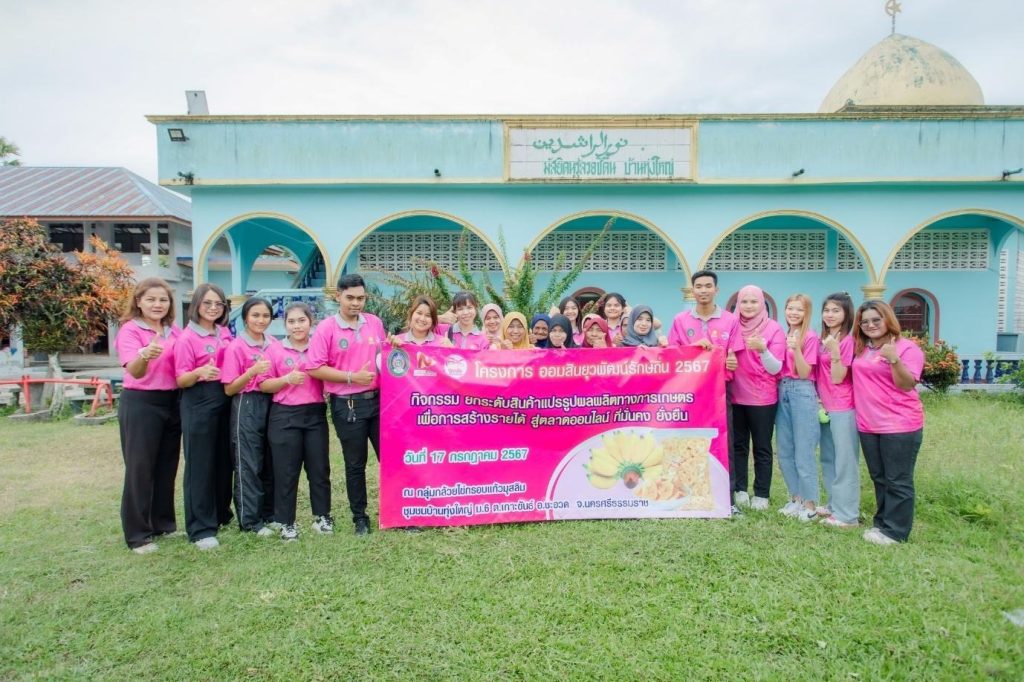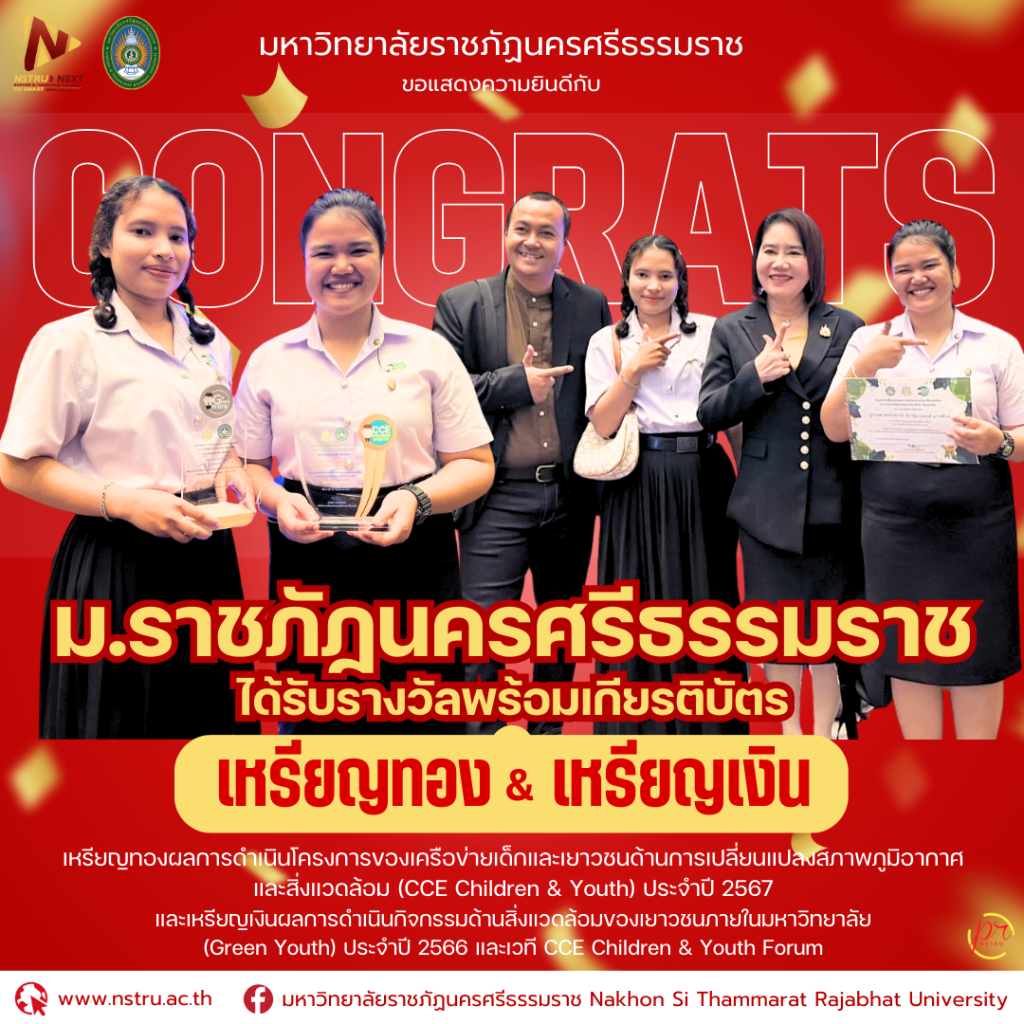Collaborate with NGOs to tackle the SDGs through: student volunteering programmes, research programmes, or development of educational resources
Nakhon Si Thammarat Rajabhat University maintains continuous collaborations with non-governmental organizations (NGOs) and civil society groups to advance the Sustainable Development Goals (SDGs). The university achieves its objectives through student volunteer initiatives, research projects, and programs that develop community learning resources. A central focus is placed on enabling students to gain practical, hands-on experience that creates lasting change within local communities.
Community Collaboration and Grassroots Development
In 2024, the university engaged in cooperative efforts with external entities, including foundations and civil society networks, under the “Aomsin Yuwapat Rak Thin” project. Its purpose was to support grassroots community development, improve local products, and create economic opportunities for the region’s inhabitants. The project’s objectives align with SDG 1 (No Poverty), SDG 8 (Decent Work and Economic Growth), and SDG 11 (Sustainable Cities and Communities).
Partnership with the CCE Children & Youth Network
The university also partners with the CCE Children & Youth Network, an NGO consortium that champions environmental and sustainable development issues among young people. University students assume leadership roles, jointly coordinating campaigns, organizing exhibitions, communicating information on global warming, and developing environmental innovations for local communities.
Consequently, the university has received the CCE Award for environmental performance and youth mobilization for consecutive years in 2023, 2024, and 2025 — reflecting the strong cooperation among academia, youth, and civil society.
